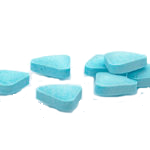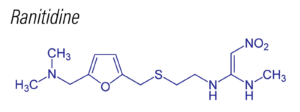Understanding the Zantac Lawsuit in 2021

The Zantac lawsuit filed results from the FDA issuing a new warning for customers of prescription and over-the-counter versions of the once-popular heartburn medication Zantac (ranitidine). Zantac is currently being investigated for cancer risks associated with the drug after a recent test revealed that the commonly-used heartburn medication contains a carcinogenic chemical up to 3,000 times greater than the FDA’s daily intake limit. The carcinogenic chemical present in Zantac is known as N-nitrosodimethylamine (“NDMA”). Now, many individuals who took this medication developed cancer are suing the manufacturer, Sanofi. If you'd like to discuss this issue or feel you may have been affected, please fill out the form on the right, or click our chat button below. Zantac cancer lawsuits are currently pending in many parts of the country, including Las Vegas, Nevada. If you or a loved one were diagnosed with cancers listed below after taking Zantac, you might be entitled to compensation by filing a Zantac lawsuit.
Zantac Recall? Zantac Cancer Risks? Enough Said. Ask Ed.
What is Zantac?

Zantac (ranitidine) belongs to a group of drugs called histamine-2 blockers. Ranitidine works by reducing the amount of acid your stomach produces.
Zantac is used to treat and prevent ulcers in the stomach and intestines. It also treats conditions in which the stomach produces too much acid, such as Zollinger-Ellison syndrome.
Zantac is also used to treat gastroesophageal reflux disease (GERD) and other conditions in which acid backs up from the stomach into the esophagus, causing heartburn.
*According to Drugs.com
Why Should I be Concerned?
Many individuals who took Zantac believe that the medication caused them to develop cancer. However, doctors found that many of these patients did not have genetic markers or family histories indicating that they were at risk of developing cancers. Some of the ones mentioned in Zantac cancer lawsuits include:
- Stomach Cancer
- Colorectal Cancer
- Esophageal Cancer
- Liver Cancer
- Pancreatic Cancer
- Kidney Cancer
- Lung Cancer
- Pediatric Testicular Cancer
- Ovarian cancer
- Pancreatic cancer
- Prostate cancer
- Testicular cancer
- Thyroid cancer
- Uterine cancer
- Breast cancer
- Melanoma
The above list does not include every possible form of cancer that might develop because of exposure to NDMA. Global health regulators in Europe and the United States have issued a warning that Zantac contains a cancer-causing ingredient called NDMA. The Zantac warning came after a pharmacy in Connecticut discovered elevated levels of NDMA while testing Zantac.
Thus far, the levels of cancer-causing NDMA are anywhere from 3,000 to 26,000 times higher than the legally allowable limit set by the FDA.
Does Zantac Cause Other Health Complications?
Some other conditions also appear in patients who took Zantac. For example, some doctors suspect that Crohn's disease or primary pulmonary hypertension could also share links to exposure to NDMA.
Crohn's disease is a condition that impacts your digestive tract. Individuals who suffer from this condition may experience cramps, abdominal pain, diarrhea, and weight loss.
Primary pulmonary hypertension is a rare ailment that causes high blood pressure in your lungs. When a person suffers from this disorder, the blood vessels in their lungs will narrow, increasing pressure on the pulmonary artery.
Frequently Asked Questions About Zantac Cancer Lawsuits
Is there a class action lawsuit against Zantac?

There is currently a multidistrict litigation case in the Florida court system against the maker of Zantac, Sanofi. This Zantac lawsuit is being overseen by U.S. District Judge Robin Rosenberg and claims that Sanofi had knowledge of the presence of N-Nitrososdimethylamine (NDMA) in Zantac. Numerous studies have found that NDMA is a carcinogen that forms in the individual's stomach if the person consumed foods high in nitrates, such as hotdogs, bacon, or other grilled meats. Because of this, the FDA requested the removal of Zantac from the market on April 1, 2020.
You don't have to have cancer to join the class action lawsuit, as it's just a case about how Sanofi withheld these dangerous risk factors. That said, if you do have a cancer diagnosis, a separate Zantac cancer lawsuit could help you recoup your medical bills and get the compensation you deserve.
What is the Deadline to File a Zantac Claim?
The class-action Zantac lawsuit in Florida is still in the pretrial stages, meaning you have some time to file a claim before the settlement. However, if you're looking to file a personal Zantac cancer lawsuit against the manufacturer, your deadline to file a claim varies depending on the state where you live. In most states, your time limit will be between one to six years after your cancer diagnosis. Make sure you research your possible filing deadline so you can get compensation for your medical bills and suffering.
How do you qualify for a Zantac lawsuit?
To join a Zantac cancer lawsuit, you'll need to meet these main qualifications:
- First, you'll need to be able to prove you took Zantac or another product containing ranitidine (the generic form of Zantac).
- Second, you'll need to have one of the cancers commonly caused by NDMA.
- Third, you'll need to have a good amount of evidence that suggests your Zantac intake could have caused your cancer. This might be true if you took a consistently high dose of Zantac over a long period of time.
If you just want to join the class-action Zantac lawsuit, you may be able to do so without a cancer diagnosis. All you'll need to prove is that you bought Zantac (or ranitidine) without knowing it had a high risk of causing cancer.
Was Zantac taken off the shelf?
Yes, the FDA advised manufacturers to withdraw all ranitidine products from the market on April 1, 2020. This is because ranitidine was found to have high levels of NDMA, a chemical that possibly causes cancer in humans.
Unfortunately, studies found extremely high levels of NDMA in Zantac products. According to the World Health Organization, NDMA is a potential carcinogen. The link between NDMA and cancer needs further research, but this chemical causes cancer in animals. According to researchers, NDMA is likely damaging to the human brain, kidneys, liver, bladder, stomach, and lungs.
According to the Food and Drug Administration, no one should consume more than 96 nanograms of NDMA each day. However, a pharmacy found more than two-and-a-half million nanograms of MDMA in over-the-counter Zantac medication and more than 3.2 million nanograms of NDMA in Zantac Cool Mint medication.
The method of testing the pharmaceutical used included high temperatures, and researchers believe this testing method may have increased the NDMA levels in the medication.
However, if someone stores ranitidine at high temperatures -- and even when properly stored -- the levels likely far exceed those considered safe for human consumption. Additionally, NDMA levels increase in Zantac the longer that the product remains on the shelf before use.
How much money can I get from the Zantac lawsuit?

How much money you can get from the Zantac lawsuit depends on how Sanofi's products affected you. If you never developed cancer, you'll just be able to join the class-action lawsuit. That means your potential payoff depends on how much the judge awards the plaintiff and how many others join the lawsuit, as funds are split with other participants. In a similar drug lawsuit, Johnson & Johnson paid out an $8 billion settlement after illegally marketing its drug Risperdal. Another case involving Johnson & Johnson required them to pay $117 million after misrepresenting the risks of transvaginal surgical mesh.
If you did develop cancer from Zantac, you have the chance to get a lot more money. You can sue Sanofi for any medical treatment you've undergone due to taking Zantac, any medical treatment you might need in the future, lost income, and even pain and suffering.
If you are a family member whose loved one took Zantac and died of cancer, you may be able to recover compensation through a wrongful death lawsuit. In these cases, you may collect for loss of companionship, support and earnings from that individual, and funeral expenses.
What Is The Cancer-Causing Ingredient In Zantac?
- N-nitrosodimethylamine (NDMA)
What Is NDMA in Zantac?
- The World Health Organization lists NDMA as a probable carcinogen, meaning it may cause cancer.
Is Rantildiline On The Recall List Too?
- Ranitidine (sold under brand names Zantac, Rani 2, and Ausran) is currently in the news because regulators have found that most formulations are contaminated. The drug has been recalled by manufacturers in multiple countries.
Should I Keep Taking Zantac for My Heartburn?
- The FDA warned anyone taking the medication that they should stop taking the over-the-counter form and instructed patients taking prescription ranitidine products to speak to their doctors about ceasing this medication.
Speaking to an attorney can help you to learn more about the viability of your claim against Sanofi. Contact Edward Bernstein & Associates today to learn more about how our attorneys can represent you and advocate on your behalf in a Zantac lawsuit. The Zantac Cancer Lawsuit Consultation is FREE
Help Is On The Way. Call Ed at 702-240-0000 NOW.
If you or a loved one was diagnosed with cancer and have taken Zantac, you may be entitled to compensation, but your time to file a lawsuit may be limited. We understand it can be scary to consider exploring litigation. We have the resources to fight aggressively for your rights. When you hire us, you won’t pay us a penny for our services, unless we get money for you.